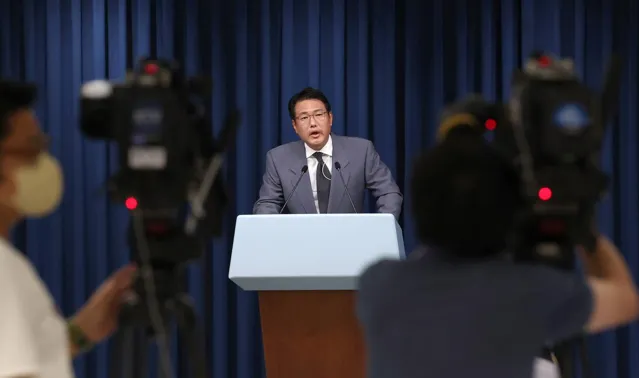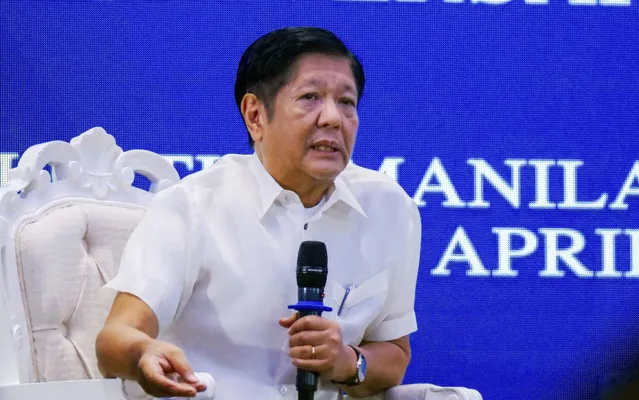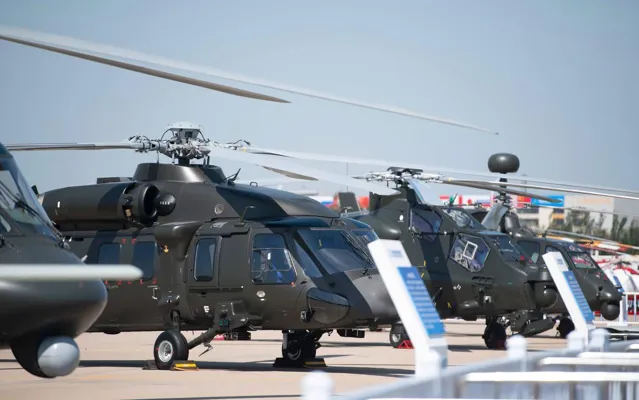編者按:如果中美在台灣問題上爆發沖突,美國盟友會參戰嗎?清華大學戰略與安全研究中心研究員周波的回答是,不一定。日前,周波在南華早報發表英文評論【Who can the US really count on in a war with China over Taiwan?】(在台灣問題上與中國發生戰爭,美國到底能指望誰?)指出,美國在全球雖然有60多個盟友和夥伴,但當最壞情況發生時,站隊美國的盟友,恐怕一只手都數得過來。觀察者網受權轉譯並釋出本文:
【轉譯/趙欣 核譯/韓樺】
在中美就台灣問題上攤牌的最壞情況下,美國的盟友會全力支持它嗎?我的回答是:不一定。美國在全球有60多個盟友和夥伴。但是,當中美爆發沖突時,對美國有幫助的盟友恐怕一只手就數得過來。
以泰國為例。自國王拉瑪四世(1851-1868)以來,泰國的外交政策一直是「隨風折腰」。這種「竹子外交」政策使該國成為唯一擺脫殖民統治的東南亞國家。
如今,北京和曼谷的關系被官方描述為「中泰一家親」。在過去幾年裏,中國已經超過美國,成為泰國坦克和船塢登陸艦等軍事裝備的主要供應商。
南韓有著相似的情況。首爾對擁核的北韓深感擔憂,但不能對北京表現出任何敵意。因為北京按照條約(【中朝友好互助條約】)對北韓有潛在的軍事援助義務。
最好的例子是看似頑固的親美總統尹錫悅。2022年,時任美國眾議院議長佩洛西竄訪台灣,引發中國人民解放軍在台灣島周邊進行實彈演習。之後,佩洛西訪韓,尹錫悅決定不與之會見。這充分說明了首爾在中美之間如履薄冰,極力平衡。

2022年8月4日,韓總統府曾表示尹錫悅只與佩洛西通話,沒有面對面會晤安排。圖自澎湃影像
日本按照條約有義務向沖突中的美國軍隊提供後勤支持,也可能會讓美國使用其基地,但它自己參戰的可能性不大。日本輿論普遍反對卷入台灣海峽沖突。根據【朝日新聞】去年的一項民意調查,只有11%的日本受訪者表示,日本自衛隊應該在戰鬥中加入美方;27%的人表示日本自衛隊根本不應該與美軍合作。
自二戰以來,澳洲參與了每一場美國卷入的戰爭,看起來是最可靠的盟友。近年來,澳洲帶頭聯合華盛頓打壓華為,並支持建立安全組織,如「奧古斯」(澳洲、英國和美國的三方軍事聯盟,AUKUS)以及重振「四方會談」(美國、日本、澳洲和印度組成的多邊安全協商機制,QUAD)。
在台灣海峽沖突中,澳洲也可能讓美國使用其軍事基地。但坎培拉方面也明確表示,它沒有向美國承諾一定參與台海沖突,以換取美國核動力潛艇。
菲律賓總統馬科斯似乎已經鐵了心要加入美國陣營,這是其他東盟領導人極力避免的。美國已獲準在菲部署九個軍事基地,這些基地將大大加強美國在所謂的「第一島鏈」沿線急需的前沿存在。最近,美陸軍在菲律賓的演習中部署了中程陸基導彈系統。
但菲律賓外交部長馬納洛去年4月也表示,菲律賓不會讓美國囤積武器用於任何對台行動,也不會允許美軍在這些地點加油、維修和重新裝彈。時間會證明這些承諾是否可靠。

馬科斯於4月15日表示不打算開放或建立更多美菲【加強防務合作協定】架構下的基地。圖自澎湃影像
那麽,美國能否像有些人所說的那樣,在印太地區發展一個「小型北約」?「奧古斯」看起來太小了,英國也不會在該地區發揮什麽大作用。即使日本加入,彼此的配合也不會緊密。
至於「四方會談」,它有安全因素考慮,這在其聯合軍事演習中已有反映。但印度的存在使它不會成為軍事聯盟。作為一個正在崛起的大國和不結盟運動的發起者之一,信心滿滿的印度不需要依附於任何大國,它的雄心是有朝一日成為像中國一樣的全球大國。印度應該不希望被外界視為與經濟和軍事實力遠超自己的北方鄰居做對。
美國的盟友是否加入美國與中國的對抗,首先取決於美國自己是否參戰。如果華盛頓認為台灣最新領導人是一個「麻煩制造者」,像之前傳言美國前總統布殊稱呼台灣前領導人陳水扁一樣,美國人憑什麽要用自己的鮮血為台灣開一張空白支票呢?
俄烏沖突也讓人三思。由32個國家組成的北約不敢與俄羅斯直接較量。俄羅斯的核彈的確比中國多,但中國軍隊的規模是俄羅斯軍隊的兩倍,國防開支是俄羅斯的三倍多。眾所周知,中國人民解放軍還擁有更先進的無人機、預警機和其他力量倍增器,如高超音速武器。

2023年9月14日,第六屆天津國際直升機博覽會上解放軍陸軍多型號現役直升機亮相。圖自澎湃影像
為什麽美國會有信心聯合幾個三心二意的盟友對抗中國呢?
美國的「戰略模糊」已經說得夠多了。該戰略沒有明確表示是否會在沖突中向台灣提供軍事援助。但對華盛頓來說,最大的戰略模糊來自北京:一個越來越強大的中國會對最終的和平統一更有信心,還是會越來越不耐煩並訴諸武力?
好幾個美國將軍已經公開預測了一些最壞的情況,但迄今為止,盡管台灣民進黨再次上台,北京仍在強調和平統一。
華盛頓指望盟國站隊參戰,可能是最佳狀態,但更有可能是一廂情願。結盟乃權宜之計。美國在本地區的聯盟更像是蕭伯納對婚姻的描述—一個關窗就睡不著的男人和一個開窗就睡不著的女人的結合。
英文原文:
In the worst-case scenario of a China-US showdown over Taiwan, will America’s allies stand with it back to back? My answer is: not necessarily. America has over 60 allies and partners around the globe. But when it comes to a war with China, those that are helpful to the US won’t be more than a handful.
Take Thailand for example. Since King Rama IV (1851-1868), Thailand’s foreign policy has been one of 「bending with the wind」. This 「bamboo diplomacy」 allowed Siam to be the only Southeast Asian country to escape colonisation.
Today, the Beijing-Bangkok relationship is described by both governments 「as close as one family」. In the past few years, China has surpassed the United States as the primary supplier of Thai military equipment such as tanks and an amphibious dock ship.
It’s a similar situation with South Korea. Deeply worried about a nuclearised North Korea, Seoul cannot afford to show any hostility towards Beijing, which has a latent treaty obligation of military help for North Korea.
The best example is that President Yoon Suk-yeol, a seemingly diehard pro-American president, decided not to meet the visiting then-US House speaker Nancy Pelosi after her Taiwan visit in 2022, which triggered live-firing by the People’s Liberation Army (PLA) around the island. It speaks volume about Seoul’s tiptoeing between China and the US.
Japan has treaty obligations to provide logistical support to the American military in a conflict. It might let the US use bases in Japan, too, but its own participation is unlikely. Public opinion in Japan is generally against getting ensnared in a Taiwan Strait conflict. According to a poll for the Asahi Shimbun last year, just 11 per cent of Japanese respondents said their armed forces should join the US in the fighting, and 27 per cent said their forces should not work with the US military at all.
Having fought in every major US war since the second world war, Australia looks the most reliable ally. In recent years, Australia has pushed Washington to curb the influence of Huawei Technologies, and supported the creation of security groupings such as Aukus (between Australia, Britain and the US) and the reinvigoration of the Quadrilateral Security Dialogue (between the US, Japan, Australia and India).
In a war in the Taiwan Strait, Australia, too, is likely to let the US use its military bases. But Canberra also makes clear it has not promised the US to take part in any Taiwan conflict in exchange for American nuclear-powered submarines.
In the Philippines, President Ferdinand Marcos Jnr seems determined to join the American camp, something other Asean leaders have tried their utmost to avoid. US access has been granted to nine military bases that would be most useful in strengthening America’s badly needed forward military presence along the so-called first chain of islands. AND RECENTLY, THE US ARMY’S MID-RANGE CAPABILITY GROUND-BASED MISSILE SYSTEM WAS DEPLOYED TO EXERCISES IN THE PHILIPPINES.
BUT Foreign Affairs Secretary Enrique Manalo ALSO said last April that the Philippines will not let the US stockpile weapons for use in any Taiwan operation. US troops will also not be allowed to refuel, repair and reload at those sites. TIME WILL TELL WHETHER THESE PROMISES ARE RELIABLE.
Then, can the US develop a 「mini Nato」 in the Indo-Pacific as some have argued? Well, Aukus looks too mini and Britain won’t be a major player in the region. Even if Japan joins, the glue that binds still won’t be strong enough.
As for the Quad, it has a security element, which is reflected in its joint military exercises, but it won’t become a military alliance because of India. As a rising power and a founder of the Non-Aligned Movement, India is too proud to be dependent on any major power. Its ambition is to become a global power like China one day. It shouldn’t wish to be seen to be antagonising its northern neighbour, whose economic and military strength far outweighs its own.
Whether American allies join the US in a war with China depends first on whether the US gets involved. If Washington concludes that the latest Taiwanese leader is a troublemaker – as president George W. Bush was rumoured to have referred to former president Chen Shui-bien – then why would it write a blank cheque with American blood?
The conflict in Ukraine is also giving people second thoughts. If Nato, an alliance of 32 states, can hesitate to take on Russia, then what gives the US the confidence to fight China with a few half-hearted allies? Yes, Russia has more nuclear bombs than China. But the PLA is twice as large as the Russian army, and has a military budget over three times bigger. The PLA is also known to have better drones, early warning aircraft and other force multipliers such as hypersonic weapons.
Much has been said about America’s 「strategic ambiguity」 – not specifying whether it would assist Taiwan militarily in a conflict – but for Washington, the biggest strategic ambiguity comes from Beijing: will a stronger China become more confident in an eventual peaceful reunification or will it become more impatient and resort to force?
Quite a few American generals have publicly predicted some worst-case scenarios, but so far, Beijing is still talking about a peaceful reunification, even as Taiwan’s Democratic Progressive Party has been re-elected.
That Washington can count on its allies is a best-case scenario – and more likely, wishful thinking. Alliance is a marriage of convenience. America’s alliances in the region are more the sort of marriage described by George Bernard Shaw – between a man who can’t sleep with the window shut and a woman who can’t sleep with the window open.












